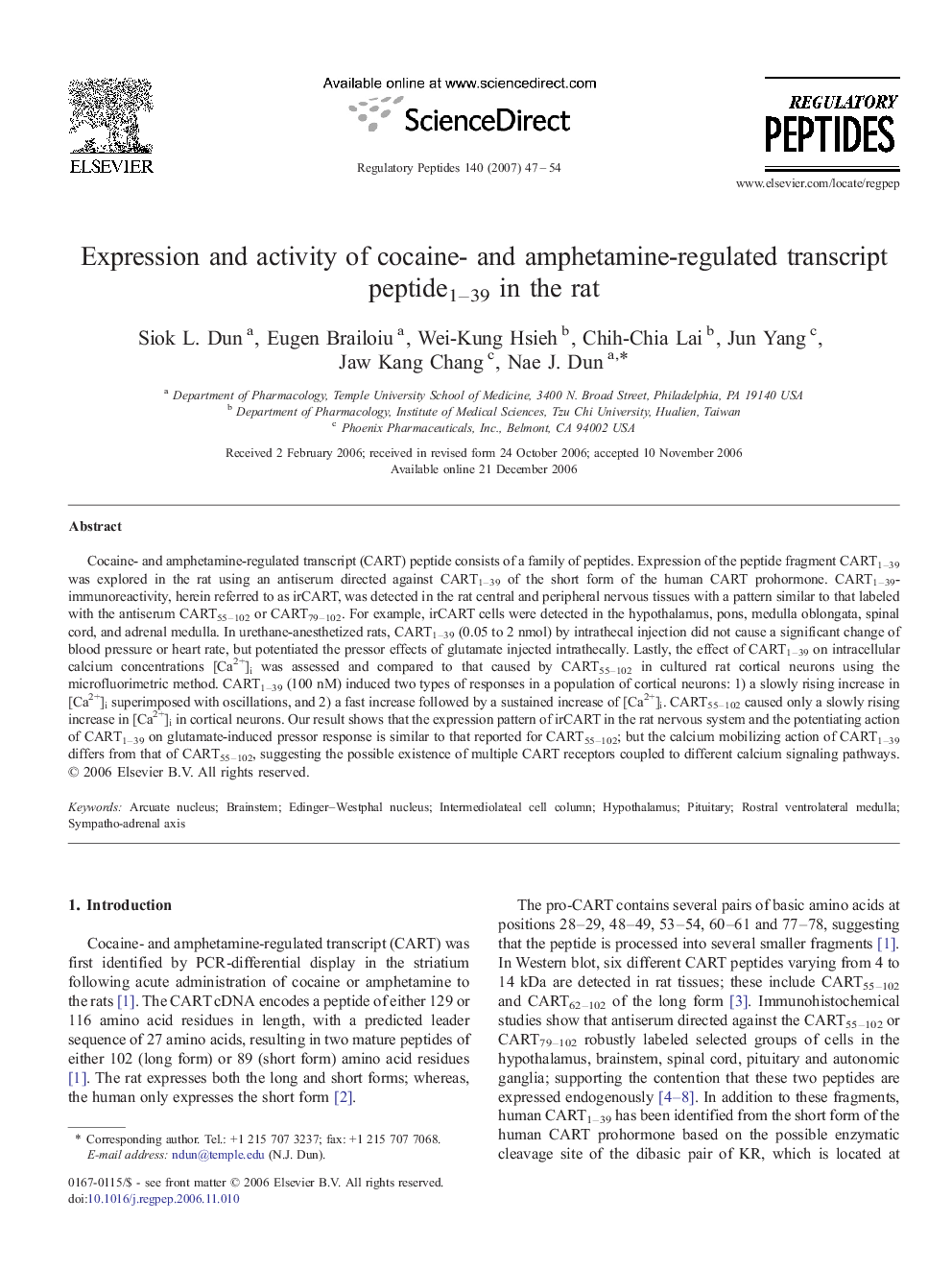| Article ID | Journal | Published Year | Pages | File Type |
|---|---|---|---|---|
| 2023370 | Regulatory Peptides | 2007 | 8 Pages |
Abstract
Cocaine- and amphetamine-regulated transcript (CART) peptide consists of a family of peptides. Expression of the peptide fragment CART1-39 was explored in the rat using an antiserum directed against CART1-39 of the short form of the human CART prohormone. CART1-39-immunoreactivity, herein referred to as irCART, was detected in the rat central and peripheral nervous tissues with a pattern similar to that labeled with the antiserum CART55-102 or CART79-102. For example, irCART cells were detected in the hypothalamus, pons, medulla oblongata, spinal cord, and adrenal medulla. In urethane-anesthetized rats, CART1-39 (0.05 to 2Â nmol) by intrathecal injection did not cause a significant change of blood pressure or heart rate, but potentiated the pressor effects of glutamate injected intrathecally. Lastly, the effect of CART1-39 on intracellular calcium concentrations [Ca2+]i was assessed and compared to that caused by CART55-102 in cultured rat cortical neurons using the microfluorimetric method. CART1-39 (100Â nM) induced two types of responses in a population of cortical neurons: 1) a slowly rising increase in [Ca2+]i superimposed with oscillations, and 2) a fast increase followed by a sustained increase of [Ca2+]i. CART55-102 caused only a slowly rising increase in [Ca2+]i in cortical neurons. Our result shows that the expression pattern of irCART in the rat nervous system and the potentiating action of CART1-39 on glutamate-induced pressor response is similar to that reported for CART55-102; but the calcium mobilizing action of CART1-39 differs from that of CART55-102, suggesting the possible existence of multiple CART receptors coupled to different calcium signaling pathways.
Keywords
Related Topics
Life Sciences
Biochemistry, Genetics and Molecular Biology
Biochemistry
Authors
Siok L. Dun, Eugen Brailoiu, Wei-Kung Hsieh, Chih-Chia Lai, Jun Yang, Jaw Kang Chang, Nae J. Dun,
